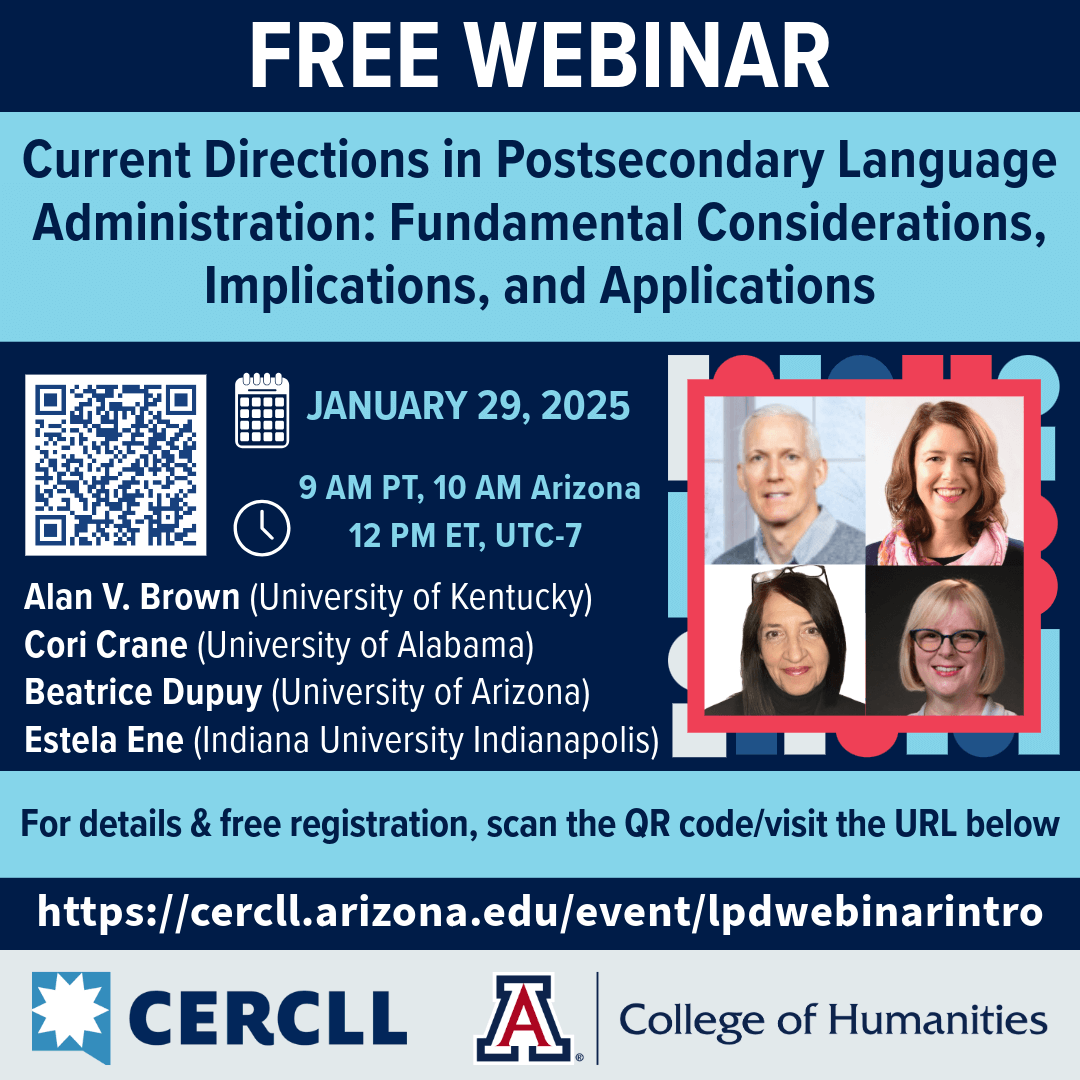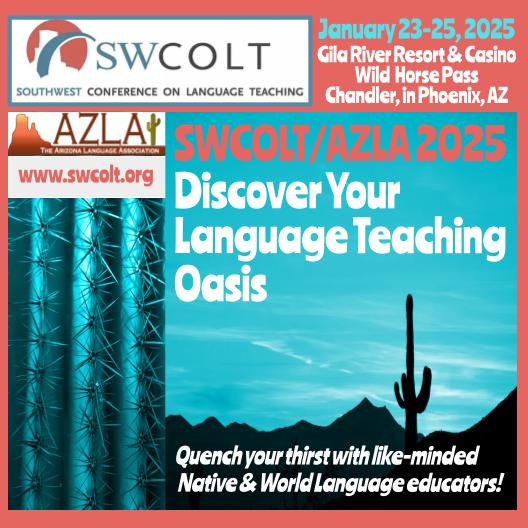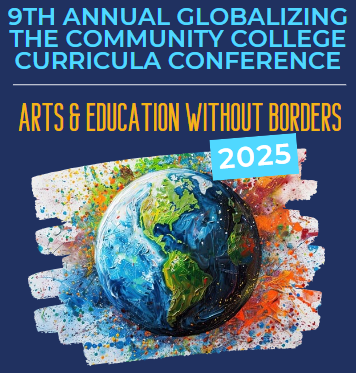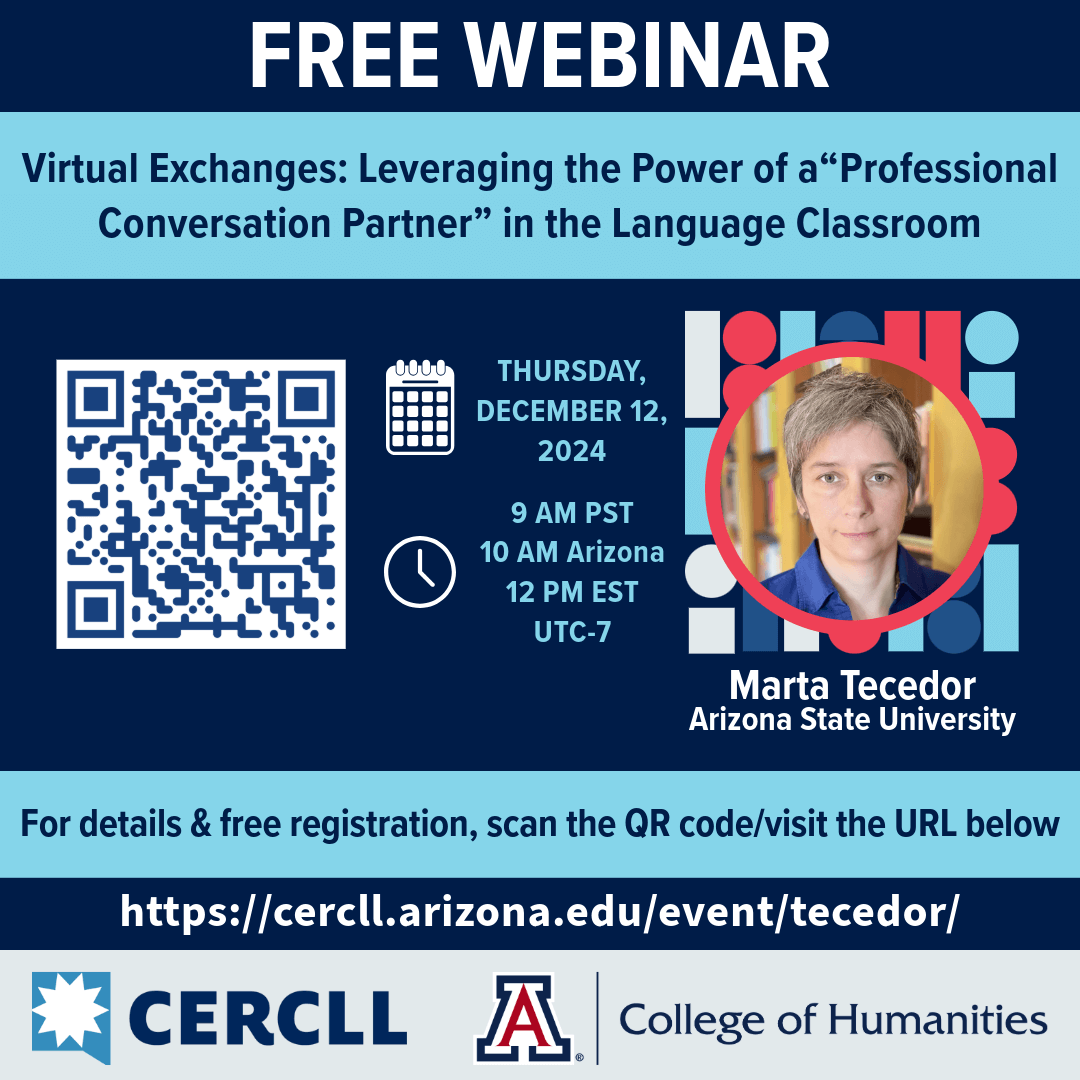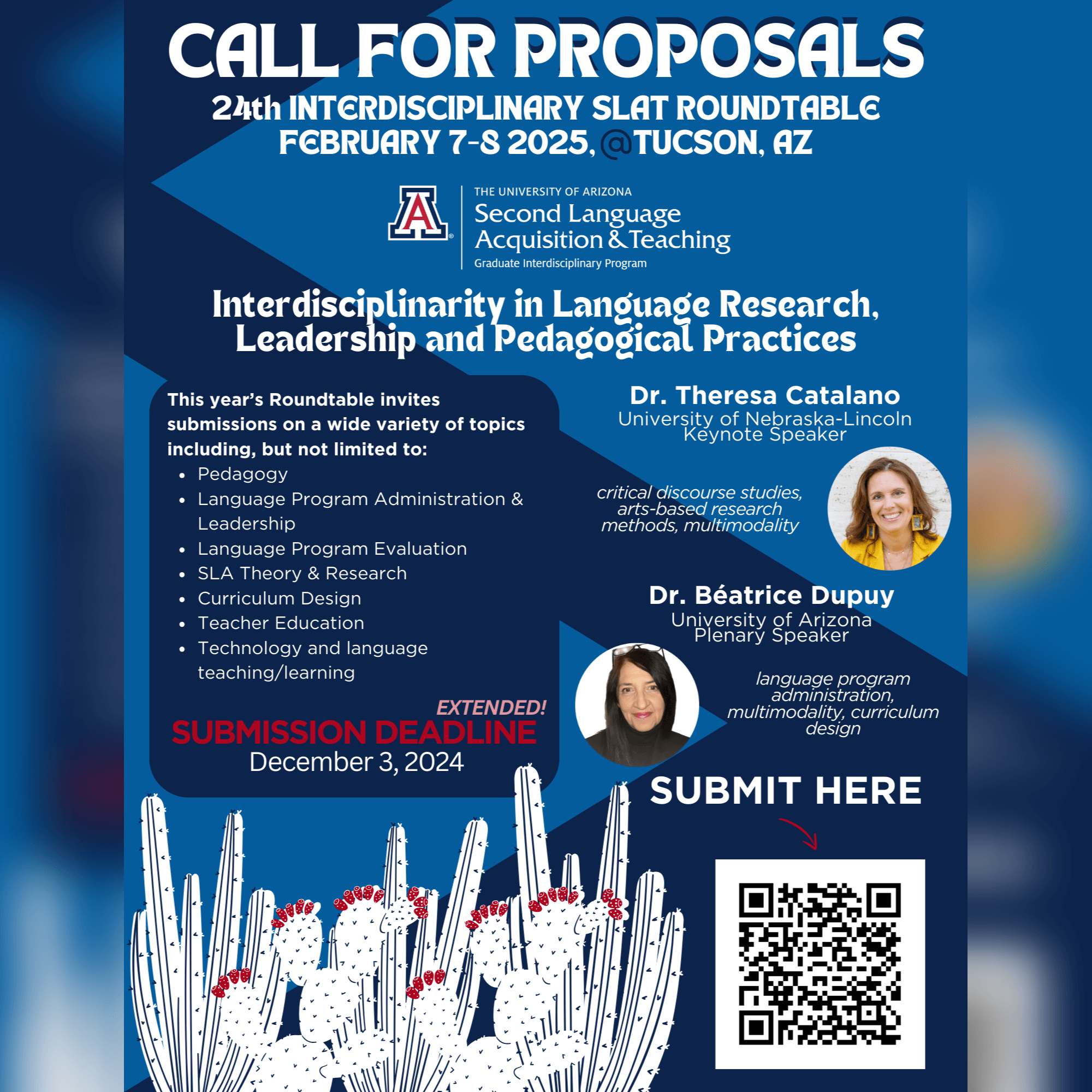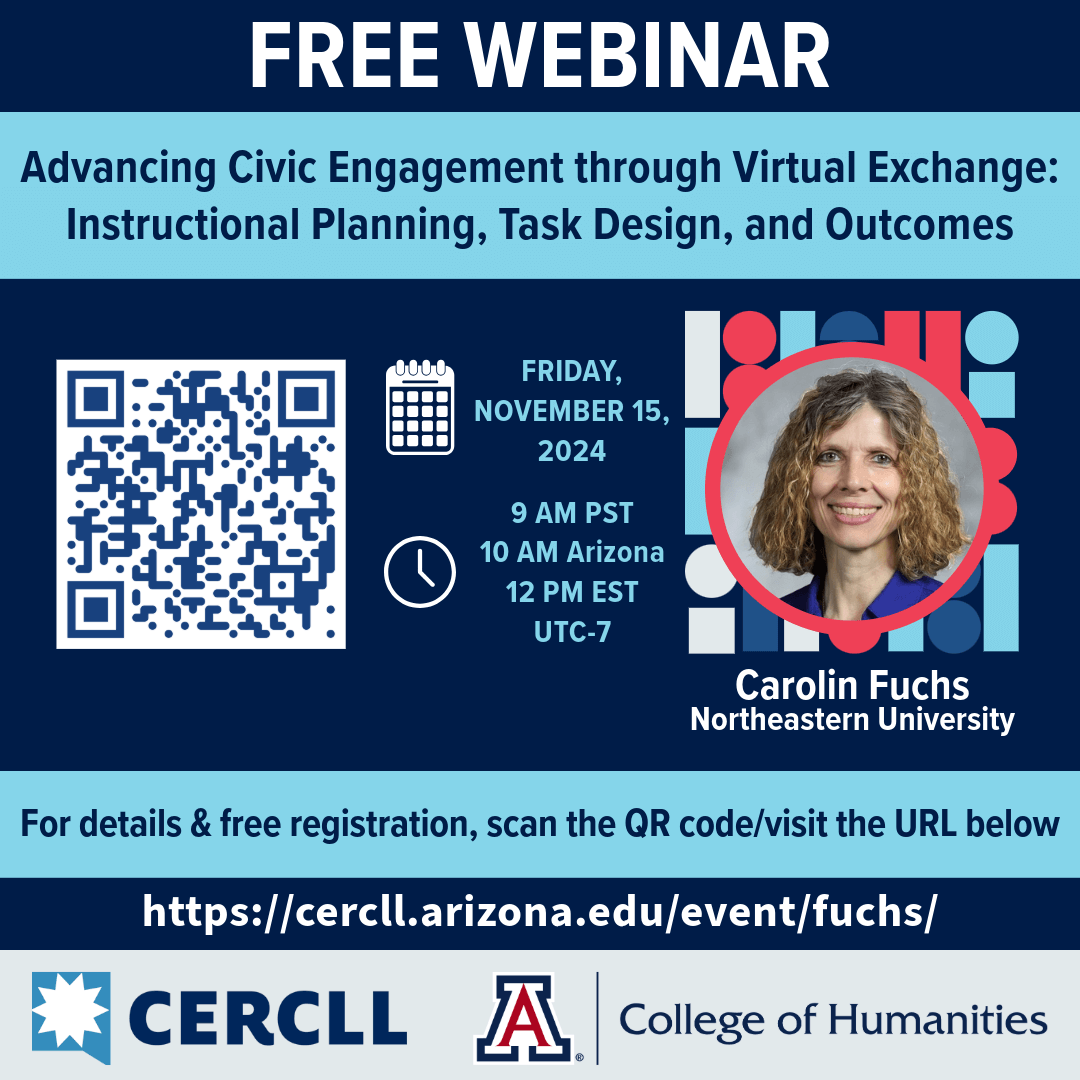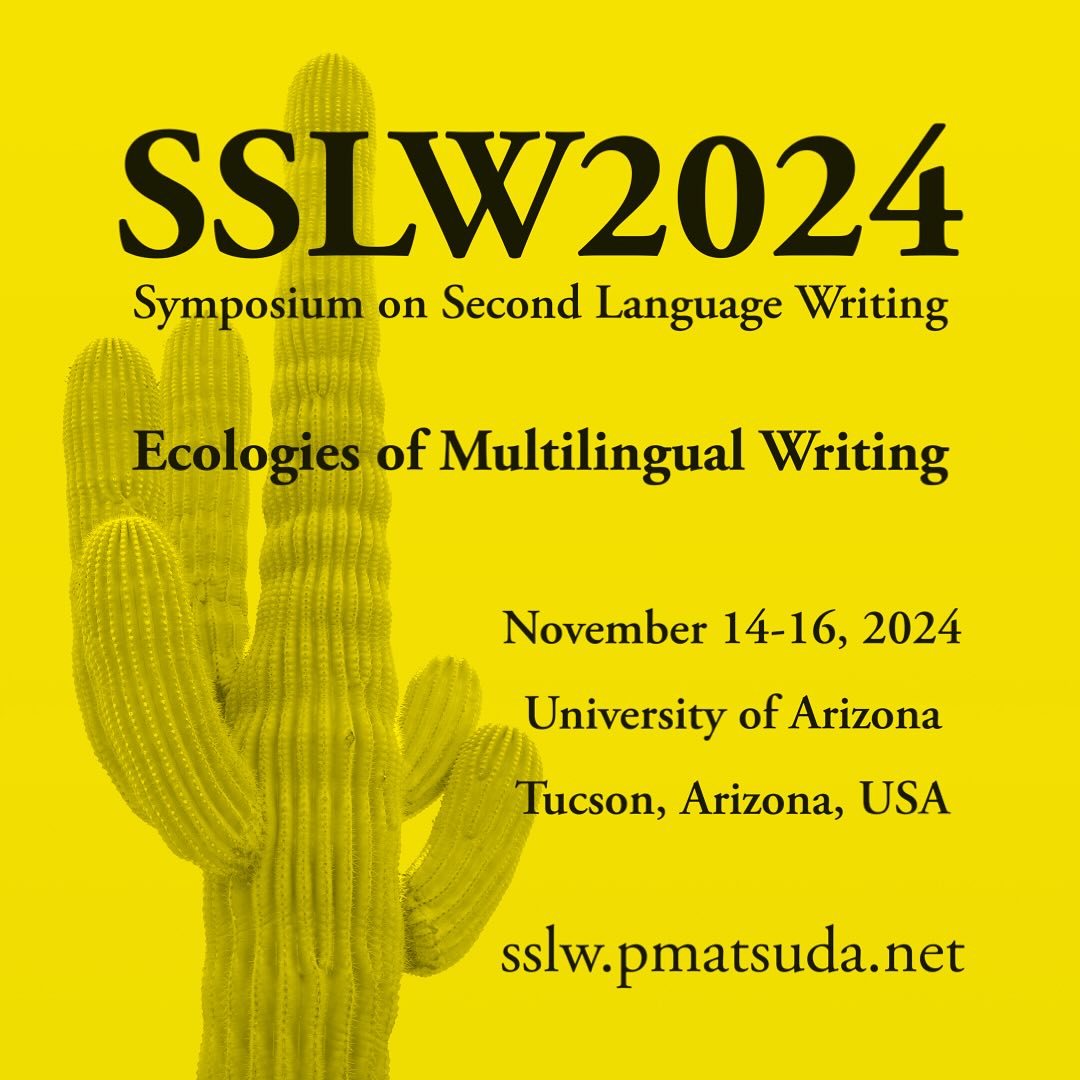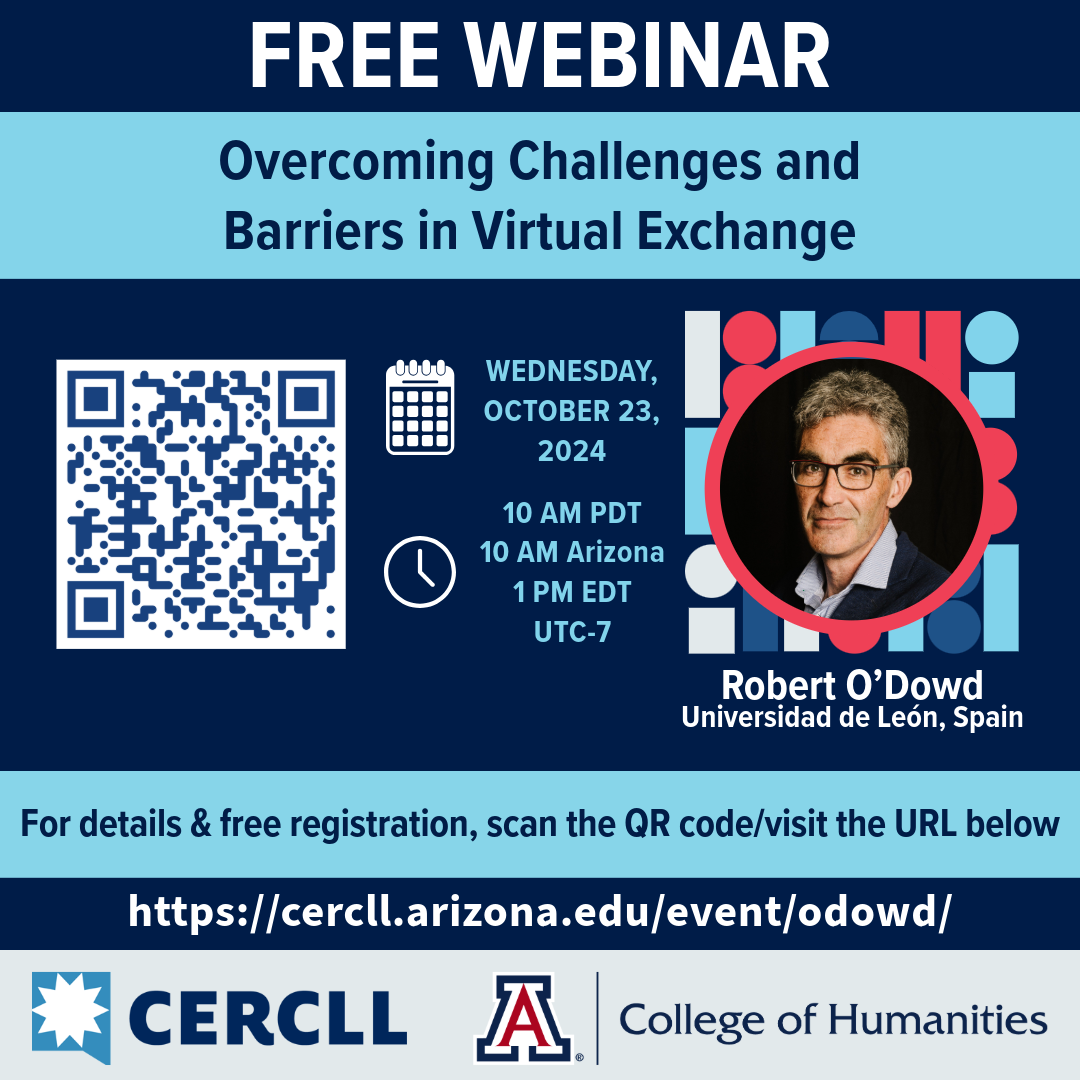General Professional Development and Other Events
Lectures and Cultural Events
CERCLL sponsors and co-sponsors numerous public events throughout the academic year. If you would like to receive announcements about these and other language-related opportunities, join CERCLL’s mailing list here.


